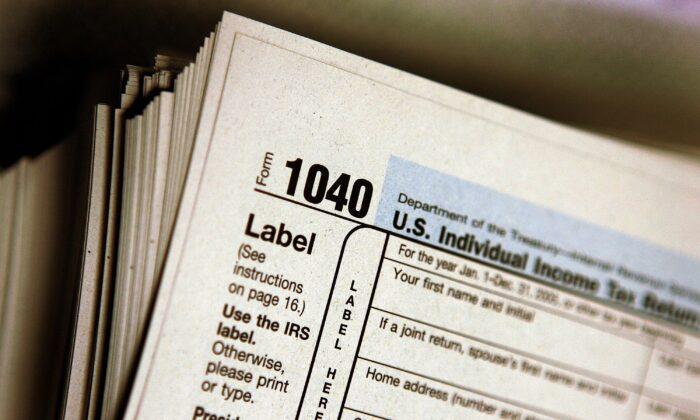Red states maintain their lead when it comes to lower tax burdens compared with blue states.
Tax-filing day is coming up on April 18, leaving many taxpayers worried about how it will affect their finances, as many are still struggling as a result of the pandemic and higher prices.
Researchers found that blue states, which generally are Democrat-leaning, faced more tax burdens than red states, which typically run Republican.
The tax burden for residents of red states stands at an average rank of 31.32, while blue states have a rank of 19.68. The smaller the number, the higher the number is in that state.
Tax burdens, unlike tax rates, vary widely based on an individual’s circumstances, according to WalletHub.
Many Americans are aware of what they pay in federal, state, and local taxes, but the complication of the tax code makes it hard for the average citizen to know how much they will be impacted.
Red State Residents Financially Better After Taxes Compared to Blue States
WalletHub compares all 50 states by reviewing three primary types of state tax burdens—property taxes, individual income taxes, and sales and excise taxes—as a share of total personal income in the state to determine which states have the biggest tax burdens.The U.S. state with the worst overall tax burden is New York, with a rating of 12.47 percent, followed by Hawaii (12.31 percent), Maine (11.14 percent), Vermont (10.28 percent), and Connecticut (9.83 percent).
Blue State Companies and Residents Are Migrating to Low-Tax Red States
In addition to the financial burden on individuals and families that state taxes present, higher taxes can also have an inhibiting effect on economic growth.“The less state tax burden will drive the state economy,” Joseph Krupka, the accounting program coordinator at Florida State University, Panama City, told WalletHub.
Florida, for example, has financially benefited from businesses and residents from high-tax states, like New York, who have fled to the Sunshine State.
“Corporations seek state tax incentives when developing long-term strategies for where to locate new facilities such as plants and offices. Reduced corporation and real estate tax burdens along with a favorable personal income tax for their employees are the two keys,” said Krupka.
The exodus from high tax-burden states have left a negative impact on their economic growth since the pandemic, which are beginning to outweigh many of the public investments existing in those states.





